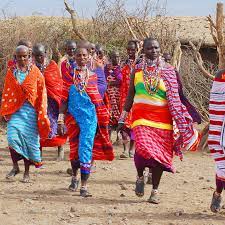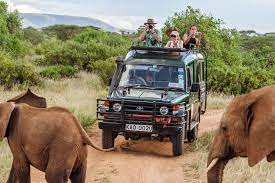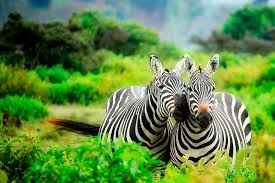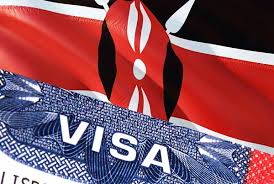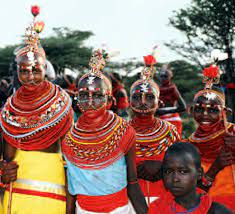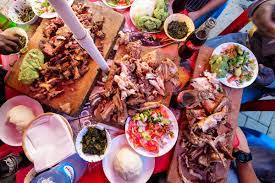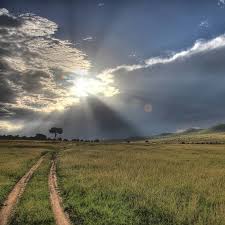Overview
Rwanda is a small country, with its modern capital, Kigali, at the centre. From here the roads radiate outwards, like the spokes of a wheel, and hence on most Rwanda holidays you’ll occasionally spend a night here as part of any itinerary. It’s a pleasant city scattered over several hills with enough to do to keep visitors occupied for a couple of days, easy to walk around with plenty of bars, cafes and restaurants for sustenance. One of the first things most people notice is that, particularly for an African city, Kigali is spotlessly clean, partly because plastic bags are banned in the country but also because of a universal service called Umuganda when everyone gets together on the last Saturday morning of each month working on community projects like keeping streets clean, tending to gardens and helping neighbours. Do bear this in mind should you be on holiday in Rwanda during this time – many shops and businesses will be closed for the morning. Kigali has relatively few tourists but those that take the time to explore the city are rewarded by a friendly response from locals and a more rounded insight into the country as a whole.
Hotels in Kigali
Kigali’s accommodation options are spread around the city and range from smart four or five star hotels to lower budget bed and breakfasts. While many are of a good international standard, our top pick being the stylish and comfortable Heaven Retreat, or are stayed in for the historical value such as Hotel des Mille Collines which was the basis for the 2004 film Hotel Rwanda, you should be aware that service can sometimes be slow in bars and restaurants. Take a look here to see our recommended hotels in Kigali.
What to do in Kigali
Shopping in Kigali
There are a number of smart shopping malls in Kigali city centre with some chic boutiques and coffee shops. But if you’re after something more authentic, take a stroll around one or two of its lively markets, you’ll usually be met with great friendliness. If you like browsing for curios and souvenirs from your Rwanda holiday, pay a visit to the Caplaki handicrafts cooperative, which sells a variety of local crafts. Alternatively, the lively Nyamirambo area of Kigali is regarded as the most vibrant quarter of the city, known for its excellent tailors and hair salons, as well as its many bars and cafes. As with any city, take care if visiting at night but during the daytime, Nyamirambo Women’s Centre offers interesting walking tours around their neighbourhood that takes in their own craft shop, a typical Rwandan meal and the local market too.
Kigali Museums and the Kigali Genocide Memorial
Kigali’s museums include the State House Museum and the Natural History Museum, both worthy of a visit if you’re in town with the latter having superb views over the city. Perhaps the city’s best known landmark, and with good reason, is the very insightful and moving Kigali Genocide Memorial standing amid beautiful rose gardens and fountains. The memorial sets out the history leading up to the genocide in Rwanda and also explains other genocides around the world. It includes poignant displays of victims’ photographs and belongings, bringing the realities of the atrocities to life. While it might seem an unusual tourist attraction and can be upsetting, it does help to put into context how and why the genocide happened and to better appreciate just how far the country has moved on together in the intervening years. It also plays a vital role in educating Rwanda’s new and future generations about the genocide.
Best Time to Visit
When planning your vacation in Rwanda, one of the first questions you are likely to have is about the best time to visit. Although Kigali is located in the heart of Rwanda, it has a temperate climate with a good amount of rainfall, thanks to its high elevation. Temperatures may vary slightly based on the seasonal months. Year-round temperatures in Kigali range from daytime highs between 25C and 27C (77F to 81F), and evening lows of 14C to 16C (57F to 61F). April through June are the coolest months, while visitors who opt to travel between June, July, August and September are likely to experience warmer, drier weather in Kigali thus the best time to visit the city. Like the rest of the cities in East Africa, Kigali also has two wet seasons: the long rains and short rains. The long rains extend from March through May, with some showers possible even in January and February. The months of October to November experience the short rains, with December generally having a bit of rain as well.
It does not rain continuously throughout the day during the wet seasons, and there are times in Kigali when the sun is out. The hilly areas of Kigali and the countryside have a cooler climate with slight variations compared to the flatter lower altitude regions. It’s important to keep in mind that the global climate has been affected by global warming, and Africa has been experiencing uneven weather patterns as a result. Accordingly, Rwanda has had its fair share of unexpected weather changes. The capital city of Kigali is a lively hub that serves as an excellent starting point for day excursions. If you are here for corporate purposes, meetings, or on holiday, you will find that urban activities are not hampered in any way by the weather. While the dry season might attract more pleasure-seeking visitors, businesspersons are likely to spend time here all year round.
Additionally, touring the country is a pleasurable experience if you choose the right months of travel in Rwanda. Even so, it’s helpful to plan your trip by taking into account the specific activities you intend to undertake. Gorilla trekking excursions to the Volcanoes National Park are best undertaken between June and September, as this is the long dry season in Rwanda. You may also consider visiting in the short dry season, from mid-December to mid-February. While some rain is to be expected during this time, trekking through the forests is easier and you will have fewer mosquitos and other insects to deal with. Aside from Volcanoes National Park, Rwanda has a variety of other parks and reserves dedicated to the conservation of wildlife. The best times to visit them are, again, during the dry seasons. However, the landscape takes on a gorgeous lushness in the wet season that is simply stunning to view and experience.
Getting There
Kigali International Airport (KGL IATA). Kigali International is a small and organized airport, and it is rare to encounter any problems. Be aware that plastic bags are illegal in Rwanda for environmental reasons, so you should bring only reusable bags into the country. Flag carrier RwandAir has by far the largest selections of flights out of KGL including one to O R Tambo Airport, but other airlines also offer flights to their respective hubs, including KLM to Amsterdam Schiphol, Brussels Airlines to Brussels, Qatar Airlines to Doha Hamad International Airport and Turkish Airlines to Istanbul IST. There are a couple of daily buses that run directly between Kigali and Kampala in Uganda. The bus is cramped and uncomfortable but is the cheapest choice. There are a couple of daily buses that run directly between Kigali and Bujumbura in Burundi. Yahoo Car, New Yahoo, East African Car Express (big bus) and Belvedere have buses in the morning.
Activities
Established as the capital after Rwanda gained independence from Belgium in 1962, Kigali is located roughly at the country’s geographical center. It’s a natural gateway for visitors and an excellent base for exploring Rwanda’s best attractions. If you have time, plan to spend at least a few days in the city itself rather than simply passing through. In the quarter-century since Kigali was devastated by the Rwandan Genocide, it has been reborn as one of the cleanest and safest capitals in Africa. Skyscrapers and start-up companies provide a surprising contrast to the lush scenery of the surrounding hills while contemporary art galleries, coffeehouses, and restaurants add to Kigali’s cosmopolitan atmosphere.
Kigali Genocide Memorial
Visit website In April 1994, members of the Hutu majority government of Rwanda initiated genocide against the Tutsi people after decades of conflict between the two ethnic groups. By mid-July of the same year, approximately one million people had been slaughtered, and 259,000 of them are buried in mass graves at the Kigali Genocide Memorial. The Memorial also hosts three permanent exhibitions, the largest of which is dedicated to commemorating the events and victims of the Rwandan Genocide. After gaining an emotional insight into the horrors that shaped Rwanda’s recent history, take a moment to reflect on what you have learned in the Memorial’s tranquil gardens. The Memorial is open seven days a week from 8:00 a.m. to 5:00 p.m.
Nyamata Church
For a more visceral education about the events of the Rwandan Genocide, travel 30 kilometers south of the city to the memorial at Nyamata Church. Here, approximately 10,000 Tutsi sought refuge within the church compound but were massacred when Hutu extremists used grenades to blast open the church’s locked doors. Today, the remains of more than 50,000 victims are buried at Nyamata. The church itself still bears original bullet holes in the ceiling and walls, and the bloodstained clothing of the victims (as well as their personal items and some of their bones) are also displayed inside the church as a heartbreaking reminder of why the events of 1994 can never be allowed to happen again.
Nyamirambo Women’s Center
Visit website Located in Kigali’s multicultural Nyamirambo district, the Nyamirambo Women’s Center is a non-profit initiative intended to provide Rwandan women with the education and training needed to find employment. The ladies that work here use their skills to create high-quality children’s clothing, accessories, and home decor products out of traditional kitenge fabrics—all of which make stunning souvenirs while funding the center’s community programs. Make sure to sign up for one of their popular walking tours, too. After a traditional snack and a lesson in Kinyarwanda, you’ll follow a local guide on a tour of Nyamirambo’s houses, independent businesses, and mosques. Afterward, enjoy a traditional lunch at one of the ladies’ homes.
Inzora Rooftop Café
Visit website Nestled at the back of Ikirezi book shop, Inzora Rooftop Café offers a fine example of Kigali’s flourishing café culture. Spectacular views of the city and the surrounding hills make the rooftop terrace special, while the house coffee is grown, picked and processed by women’s co-operatives throughout Rwanda. The menu would do justice to any Western hipster hangout—think macadamia and chia seed granola followed by gluten-free brownies. Plus, everything from the ingredients to the furniture is locally sourced. The café is open from 8:30 a.m. to 8:00 p.m. on weekdays and from 10:00 a.m. to 6:30 p.m. on weekends, making it the ideal spot for a leisurely brunch or for an evening with a view.
Inema Art Center
Visit website Founded in 2012 by two brothers with a passion for supporting and showcasing emerging Rwandan artists, Inema Art Center is now one of the best contemporary galleries in the city. It features the work of ten resident artists working across a broad spectrum of different mediums. It also hosts workshops and training programs for the next generation of Rwandan creatives, including weekly workshops for orphans with artistic abilities, traditional dance programs for children and a crafts program for women. Visitors can peruse (and purchase) the artworks in the gallery, or shop for jewelry, linens, and leatherwork created by the center’s students at the gift shop. Keep an eye out for regular music and dance performances too.
Kimironko Market
For a truly immersive shopping experience, head to the vast warehouse complex known as Kimironko Market. This is the busiest and most popular market in town with vendors selling wares from all over Rwanda as well as East, Central and West Africa. You’ll find souvenirs and crafts for rock-bottom prices and swathes of kitenge fabric that can be transformed into unique clothing by the market’s on-site seamstresses. Kimironko is also a market place for local Rwandans with different sections selling colorful fruit and vegetables, clothing, home supplies, and pungent meat and seafood. It’s chaotic, loud and often overwhelming, but the kaleidoscope of sights, sounds, and smells serve as an authentic insight into everyday life in Kigali.
Repub Lounge
Visit website Known amongst expats and locals alike as the place to unwind after a busy day, Repub Lounge has a loyal following in Kigali. Its African interiors use kitenge fabrics and hand-crafted furniture to create a convivial atmosphere while the outside deck impresses with mesmerizing views of the city lights. The menu features Rwandan and East African cuisine with a focus on grilled meats (though there are options for vegetarians). The brochettes (a.k.a. skewers) are a particular highlight and are great for sharing dishes are perfect for larger groups. Order a glass of wine or a cocktail from the extensive drinks list, then sit back and relax whilst listening to Afro-inspired live music. The staff is famously attentive and the prices are reasonable.
Hôtel des Mille Collines
Uniqueness
Kigali city has been the economic, cultural and transport hub of Rwanda since it became the capital at independence in 1962. This city is developing fast and is very much a show piece capital designed to impress the safari visitors; from the humble tourists, to foreign investors and visiting dignitaries. Kigali city also houses several memorials, museums and centers dedicated to the Rwandan Genocide, including the Kigali Genocide memorial center. The other museums also include; the national museum of Rwanda and the Kandt House Museum of Natural history. The presidential palace museum, the abode of the formal president Habyarimana; is another place of interest to get a glimpse of the life of a dictator. There is also a display on Rwandan clothing. As a clean, comfortable and orderly city; Kigali is very popular with long term expats, and the city is teeming with westerners enjoying a relaxed life style. This attracts many tourists to come and enjoy the many Rwanda safaris carried out in the country. This in return means that the city supports numerous restaurants, coffee shops and the super markets that cater to this demographic.


